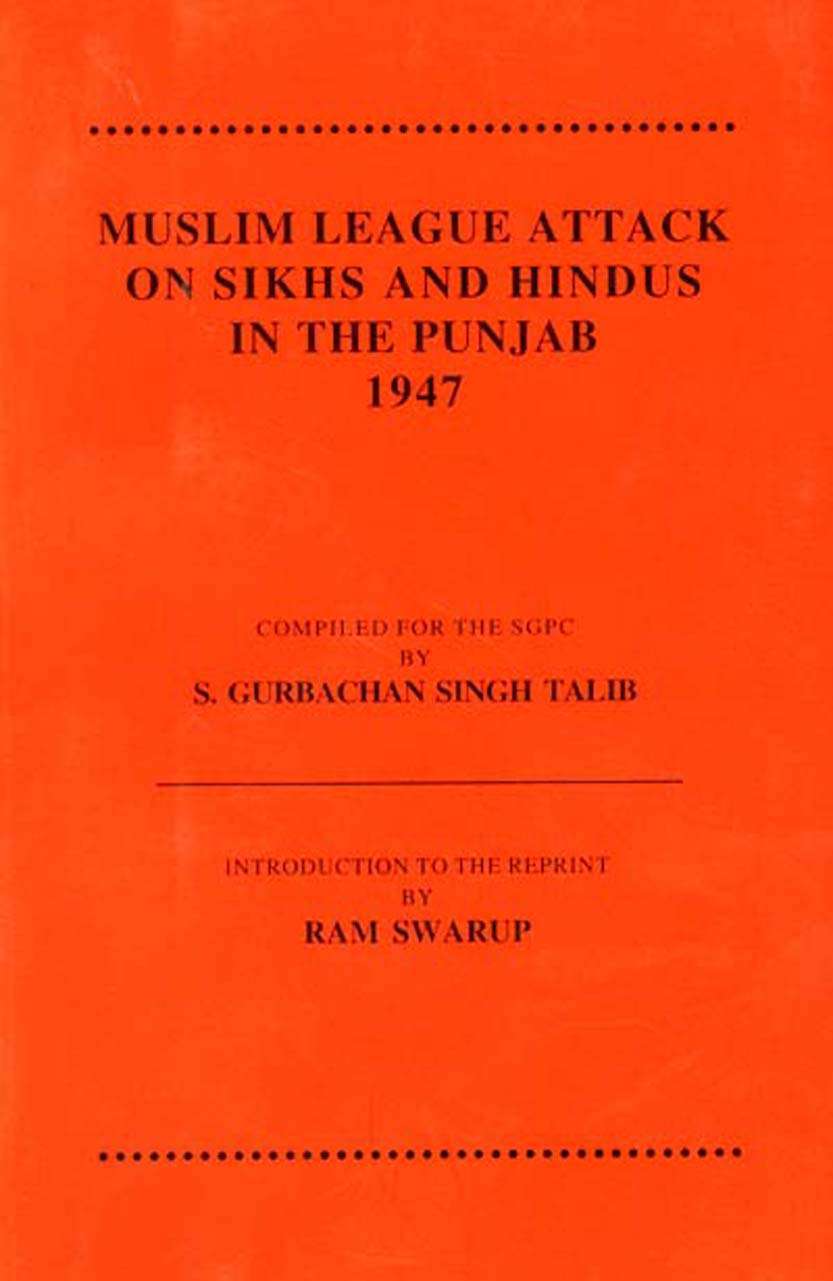Muslim league attack on Sikhs and Hindus in the Punjab 1947, comp. for the SGPC by S. Gurbachan Singh Talib, introd. to the reprint by Ram Swarup
Muslim league attack on Sikhs and Hindus in the Punjab 1947, comp. for the SGPC by S. Gurbachan Singh Talib, introd. to the reprint by Ram Swarup is backordered and will ship as soon as it is back in stock.
Couldn't load pickup availability
Genuine Products Guarantee
Genuine Products Guarantee
We guarantee 100% genuine products, and if proven otherwise, we will compensate you with 10 times the product's cost.
Delivery and Shipping
Delivery and Shipping
Products are generally ready for dispatch within 1 day and typically reach you in 3 to 5 days.
Book Details:
-
Author: Sardar Gurbachan Singh Talib
-
Publisher: ADITYA PRAKASHAN Indological Publishers & Booksellers
-
Language: English
-
Edition: New Delhi, 1991
-
ISBN-13: 9789385485114
-
ISBN-10: 9385485113
-
Subject(s): History, Voice of India
About the Book:
This volume is a reprint of a crucial work first compiled by Sardar Gurbachan Singh Talib in 1947, who was the Principal of Lyallpur Khalsa College, Jullundur. Published in 1950 by the Shiromani Gurdwara Parbandhak Committee, the book documents the painful and traumatic experiences of 7 million Hindus and Sikhs who were uprooted from their homes in the West Punjab, the North-Western Frontier, Sind, and parts of Kashmir during the partition of India. It captures the atrocities of the period—carnage, killings, abductions, and forced conversions—that led to one of the largest mass migrations in human history.
Talib goes beyond the personal stories of suffering to explore the political backdrop of these events, connecting them to the broader Muslim politics of the time, which were deeply rooted in Islamic theology. The author argues that the politics of the Muslim League were not a sudden emergence but rather a continuation of a larger tradition of Muslim political thought grounded in the idea of Jihad and the concept of believers versus infidels. He suggests that the partition and subsequent creation of Pakistan were not isolated incidents but part of a long history of ideological forces at work in the region.
In a broader historical perspective, Talib draws parallels between the events of the 1940s and the ongoing political dynamics in South Asia, particularly with the rise of Islamic fundamentalism and Pakistan’s evolving role in the Middle East. He critiques the Indian response, pointing out the historical neglect and the refusal to acknowledge the deeper ideological forces that have shaped the region’s political landscape.





